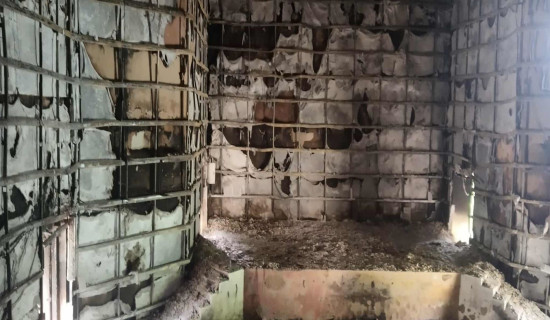- Friday, 19 September 2025
Follow Humanitarian Law
Amidst Israel’s ground invasion of the Gaza Strip, a United Nations Commission has come up with a report, accusing the country of carrying out acts of genocide in the region. Post Hamas attack on Israel in October 2023, the country defends its operations as a fight against 3,000 Hamas fighters and an effort to bring back its hostages. However, such justification does not diminish the continued death and displacement of innocent Palestinians.
The humanitarian crisis in Palestine has reached a critical point. It has been reported that since 2023, more than 65,000 Palestinians have lost their lives. A recent report submitted by the United Nations’ International Commission of Inquiry (COI) on the Occupied Palestinian Territory, including East Jerusalem, and Israel, to the 60th session of the UN Human Rights Council states that Israel has committed acts of genocide in the occupied Gaza Strip. It describes that the country has committed four acts which are restricted under the Geneva Convention.
They include killing members of the group; causing them serious bodily or mental harm; deliberately inflicting on the group’s conditions of life calculated to cause its physical destruction, in whole or in part; and imposing measures intended to prevent births. On Israel’s part, it completely rejects the allegations in the report, calling it fake and distorted. But the situation remains dire on the ground. With heavy bombardments, the remaining Palestinians are now fleeing the Gaza Strip.
The conflict’s ripple effects were recently evident in Doha, Qatar, after a reported Israeli airstrike targeted a location where Hamas' political leadership was present. This has brought huge international condemnation, pointing to an already difficult state of negotiation. Qatar, along with Egypt, remained a prime mediator between Israel and the Hamas leadership. However, the attack risks further stretching the timeline for a resolution between the estranged parties.
The international community now has the responsibility to demonstrate solidarity and intervene urgently in this matter. This must involve not only demanding accountability on the part of the Israeli leadership but also prioritising the protection of Palestinian civilians. The war must be halted immediately to bring peace and stability to the region. The core focus must remain on safeguarding innocent lives, be it Palestinians or Israelis. This is primarily a matter of human rights and international humanitarian laws.
For the longest time, the international community, including countries like Nepal, has advocated for a two-state solution in the region. In the midst of a worsening situation, the international community must emphasise protecting the fundamental and human rights, including the right to life, liberty and the right to live with dignity of the civilians. Major powers must show greater sensitivity and work towards de-escalation rather than remaining passive observers. The United Nations report highlights the actual scenario of the region. But merely highlighting the matter is not enough.
Decisive, multilateral actions ranging from sanctions to embargoes have to be considered to ensure compliance with international laws and to prevent further loss of life. A mutually negotiated term that assures safety to the innocent Palestinians, while guaranteeing Israel its own security, is key. The international community must prioritise maintaining the sanctity of international organisations like the United Nations and international conventions. Hopefully, the current situation will head towards the path of resolution to establish peace and security in the region.














